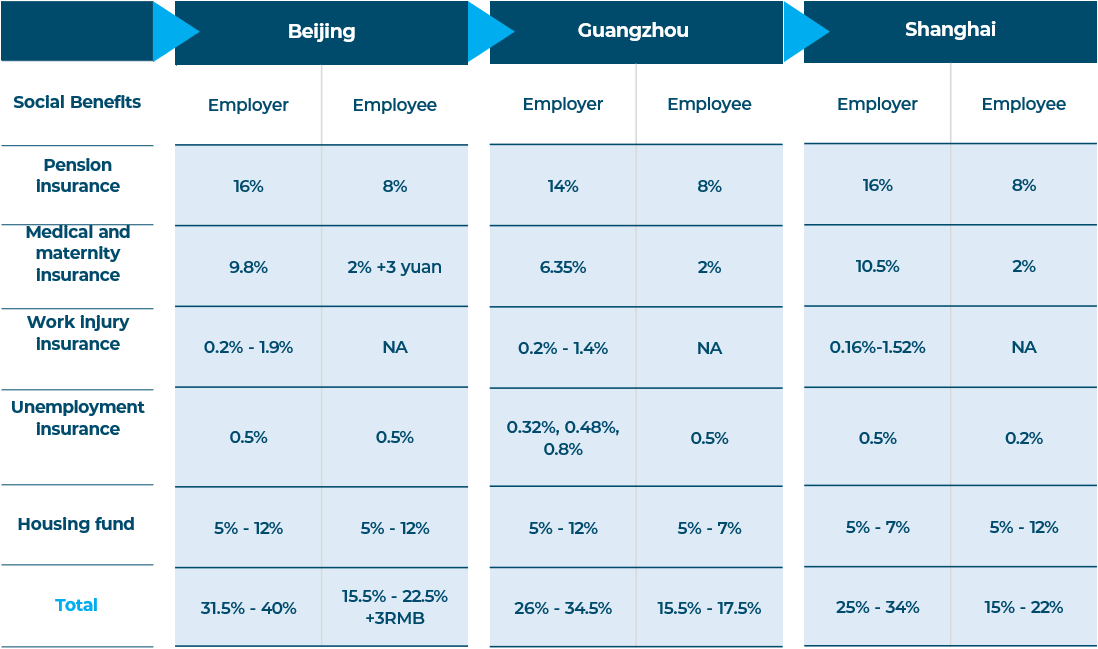In the changing landscape of China’s economy, Beijing, the capital city, is increasingly appealing to international investors seeking strategic avenues for business expansion. While other major cities such as Shanghai, Guangzhou, and Shenzhen have traditionally been economic powerhouses, Beijing, with its unique blend of historical significance and modernity, is quickly becoming an attractive investment hub. This article aims to explore the numerous opportunities that make Beijing a compelling choice for foreign enterprises looking to establish a presence in China’s growing economy.
Economic Landscape of Beijing
Situated in the northern part of China, Beijing, the capital of the People’s Republic of China, is known for its historical significance. Once known as Peking, it has evolved into a central political and cultural hub among China’s major cities.
Beijing is notable for its sizable population, with nearly 22 million residents, making it the world’s most populous national capital city. It operates under the direct governance of the State Council, holding an administrative status similar to that of a province due to its substantial size and significant economic influence.
Beijing’s substantial GDP, which reached RMB 4.16 trillion (571 billion USD) in 2022, makes it an attractive destination for foreign investment. This combination of historical heritage and vibrant culture solidifies Beijing’s status as an essential global center for commerce, culture, and governance.
Regarding its economic landscape, Beijing features highly developed financial, service, R&D, cultural, and education sectors. In 2022, the service sector accounted for roughly 83.8 percent of the city’s GDP, with agriculture contributing only 0.3 percent and industry making up 15.9 percent. This economic diversification underscores Beijing’s dynamic role as a multifaceted center for innovation and development across various industries.
The Advantages of Doing Business in Beijing
Doing business in Beijing offers numerous advantages. The city provides access to a rapidly expanding consumer market due to the growing middle class, offering opportunities in various sectors.
Government reforms prioritize ease of doing business, reducing administrative obstacles and tax incentives. Beijing’s central location within China enhances proximity to governmental and economic activities, facilitating networking and business development.
The city boasts robust infrastructure, modern transportation systems, and a strong culture of entrepreneurship and innovation, creating a conducive environment for startups and established businesses alike. These combined benefits make Beijing an appealing and dynamic destination for companies seeking to thrive in China’s evolving business landscape.
Development of Key Industries -Industrial Advantages
Science and Technology
Investing in Beijing’s science and technology sector offers access to a robust ecosystem with over 93 unicorn companies, solidifying its reputation as China’s unicorn capital. The city also accommodates 600 foreign firms, including major players like Apple and Tesla, which have established R&D centers.
The recent establishment of the Beijing Free Trade Zone underscores the city’s commitment to being a hub for high-tech digital services. Beijing’s strategic spatial deployment, featuring the “three science cities and one hi-tech area” program, fosters a collaborative environment that prioritizes innovation commercialization. With a diverse talent pool, business-friendly policies, and a dedicated economic development area, Beijing presents an appealing destination for technology investments, providing ample room for steady growth and innovation
Software and Information Services Industry
Beijing fully recognizes the pivotal role played by the software and information service industry in its economic landscape. This sector has seen remarkable growth in recent years, driven by Internet information services and data services and more, contributing significantly to its overall revenue. As a leading force within the city’s tertiary industry, the industry, particularly Internet information services, has exhibited outstanding development and innovation, making up a substantial portion of the city’s revenue.
Services Industry and Digital Economy
During the years of Covid, Beijing confronted significant global challenges, including economic pressures and unexpected disruptions. However, the city remained resolute in its pursuit of progress and stability. As a result, Beijing’s regional Gross Domestic Product experienced positive growth, with the service industry contributing over 80% of the added value, and the digital economy surging to 41.6%. Notably, total market consumption exceeded CNY 3 trillion, with services accounting for approximately 55% of this figure.
The city excelled in services trade, nearly reaching CNY 1 trillion, while the tertiary industry played a pivotal role in Beijing’s GDP, reaching CNY 3.49 trillion, signaling consistent growth.
Additionally, the digital economy’s added value amounted to CNY 1.73 trillion, constituting 41.6% of Beijing’s GDP, reflecting substantial progress. Beijing’s commitment to expanding the opening-up of the service industry attracted foreign investments of 16.88 billion US dollars and led to the establishment of 1,371 foreign-invested enterprises, reinforcing its pioneering role in the opening-up and reform of the service sector in China.
Promotion of International Investment
Beijing has been actively working to enhance foreign trade and investment by implementing a comprehensive system to stabilize foreign investments. This effort has resulted in a notable year-on-year increase of 12.7%, totaling $17.41 billion in actual foreign investments. In the coming years, the city plans to focus on maintaining stability and quality, fostering collaboration between districts and various stakeholders, and promoting investment through platforms like the “Fair for Trade in Services.” A survey reveals that nearly 60% of enterprises intend to increase their investments in Beijing, particularly in the modern service sector.
Despite global economic uncertainties and geopolitical factors, cooperation remains essential for boosting investment confidence. Beijing’s future strategy includes ongoing improvements to its business environment, encompassing policy support, streamlined governmental services, talent attraction, innovation support, and fiscal incentives, ensuring its continued appeal as a destination for foreign businesses and investments.
Company Registration in Beijing
Registering a company in Beijing necessitates meeting specific prerequisites, including securing a registered company name and a Chinese address, obtaining a business license, company chops, and the official legal representative chop. Corporate bank accounts are also required for financial transactions, social insurance, housing fund contributions, and a tax registration number. Additionally, any relevant licenses, such as those for food and beverages or medicine, must be obtained. The timeline for completing this registration process typically varies between 30 to 60 days, contingent upon how efficiently these requirements are met.
For foreign investors considering market entry into China, a deep understanding of the intricacies of establishing a business entity is imperative. It’s essential to grasp the legal framework governing company establishment and select the most suitable investment vehicle in alignment with strategic objectives.
The three primary investment vehicles, as mandated by the new Foreign Investment Law, encompass Wholly Foreign-Owned Enterprises (WFOE), Joint Ventures (JV), and Representative Offices (RO). Moreover, following the establishment of an entity in China, Branch Offices can serve as an invaluable avenue for expansion. The choice of the appropriate market entry method should be tailored to the company’s intended scope of business activities and its specific industry.
WFOE in Beijing
For foreign companies wanting to operate in China’s capital city, the Wholly Foreign Owned Entity, more commonly known as a WFOE, is the preffered choice. By setting up a WFOE in Beijing foreign entities are able to carry out various business activities including consulting, trading and manufacturing.
For a comprehensive overview of a WFOE and how to set it up, request our free WFOE White Paper, which provides a step-by-step process where you can learn more about how a China WFOE works.
Payroll in Beijing
Refer to our Payroll Page for what you need to know about setting up and managing payroll in China.
Why Consider Investing in Beijing
An Economically Attractive Destination
Looking into the year ahead, Beijing continues to be an attractive destination for foreign investment, supported by growing economic performance. The city’s regional GDP reached CNY 4.16 trillion, with a per capita GDP of CNY 190,000, comparable to developed econox`mies. Labor productivity in Beijing also led the country at over CNY 350,000 per person.
High Quality Infrastructure
Beijing’s strategic global connectivity, facilitated by modern infrastructure and an international airport, underlines its importance in international trade. In 2022, the city achieved a record high of CNY 3.64 trillion in total goods import and export value.
Importance to Global Business
The city’s thriving ecosystem of both local and foreign-funded enterprises positions Beijing as a hub for innovation and emerging technologies. It hosts 54 headquarters of Fortune Global 500 enterprises and 217 regional headquarters of transnational companies, highlighting its global business appeal.
Improved Market Access
Additionally, the government’s initiatives to simplify registration processes and enhance market access demonstrate its dedication to facilitating foreign investment. Beijing’s education system continually supplies a pool of skilled professionals, while its rich culture enhances the quality of life for residents and expatriates. In the service trade, Beijing’s import and export volume accounted for 16.6% of China’s total, reinforcing its global trade significance.
For more than a decade, MSA has been committed to assisting foreign businesses in China through our services, which encompass accounting, tax advisory, and corporate setup. Our experienced team has a deep understanding of China’s complex business landscape. If you’re interested in exploring potential collaboration with us, please don’t hesitate to contact us and schedule a consultation. We’re here to help you navigate your path to business success in China.







